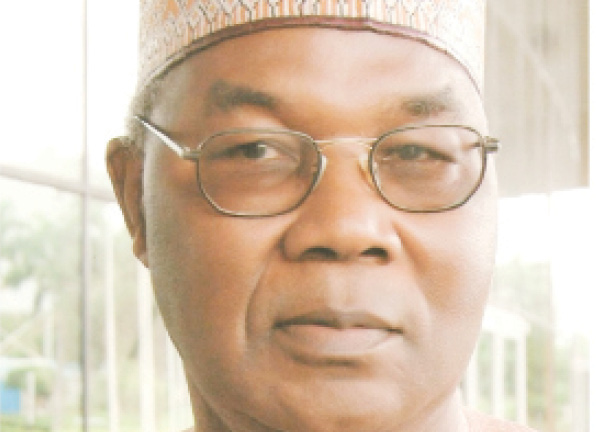Title: My Public Service Journey: Issues in Public Policy Administration in Nigeria
Author: Bukar Usman
Publisher: Klamidas Communications Ltd
Pages: 456
Reviewer: Khalid Imam
The book, ‘My Public Service Journey: Issues in Public Policy Administration in Nigeria’, is an expository work written by one of Nigeria’s most distinguished public servants, Dr Bukar Usman. The author, a retired federal permanent secretary, brings his personal experience and insight to his informed analysis and assessment of public service administration in Nigeria. The book identifies the distinguishing features of the country’s civil service during different administrative and political epochs, including a comparative analysis of the civil service under parliamentary democracy, presidential system of government and military rule.

The book is partly autobiographical and the author took advantage of this to talk about how the public service of his childhood days was and how the efficiency and leadership model of those in his native Biu setting inspired him to choose a career in that path.
Usman began his journey as a third class clerk in 1965 and retired as a permanent secretary in the presidency in 1999. He served long enough, and at different levels, to know the inner workings of the Nigerian civil service, and it is this experiential knowledge that he brilliantly shares in this book for the benefit of current and future public policy administrators.
The book has two broad parts each of which is divided into appropriate sections and chapters. Part A, titled ‘Expositions on Public Policy Administration’, consists of three sections and ten chapters. In section I, the author, as earlier mentioned, narrated his childhood acquaintance with public administration. He also used this section to discuss institutional tools of public policy administration. In Section II, several topics in public policy matters were treated. They include the role of the civil service (pp.68 – 73) and 50 Years of Nigeria’s Public Service (pp. 90 – 98). Section III was devoted to the author’s lectures on ‘Ethics, Accountability and the Public Service’.
Part B is devoted to the author’s speeches, interviews, travelogues and newspaper articles. The latter includes dozens of newspaper articles on international and domestic issues such as the fight against corruption, free and fair election, national security, fight against HIV, and the place of traditional institutions in a democratic setting. The author’s professional involvement with the wider society, the media, the academia, and labour unions, was also discussed in Part B.
There is an introductory note at the beginning of each section. The author uses this to explain some of the technical terms and usages the general reader might not be familiar with or fully understand. This is in line with his belief that “the duty of a professional who needs to communicate to non-professionals” is to ensure that the readers understand “the import of his or her narration”. For example, he clarified that a “public servant” may not necessarily be a “civil servant”, sharing the view of Engr. Vincent Maduka, a former NTA Director-General, that only someone employed by the Civil Service Commission is a civil servant.
The author categorized public policies into four broad types: substantive policy, regulatory policy, distributive policy and capitalization policy. According to him, key aspects of the public policy process include agenda setting, problem recognition, documentation, policy design, consultation, decision making, implementation, output, impact and outcome. All these public policy steps, which are explained in the book, are usually followed in the public service not only to guard against abuse of procedure but also to ensure that the primary goal of the service, which is: “to solve public problem(s) efficiently, effectively and in fairness to all,” is realized.
Reading this book makes one fully appreciate the importance of the public service, especially its constitutional roles in overall management of the polity, ensuring sustainable development, maintenance of law and order, and safeguarding the security of lives and properties.
In Section VI, the author rounds up his narrative. In ‘Home Notes’, he shares some of his family’s holiday destinations with the reader, offering enlightening commentaries on the European and Asian resorts and monuments he visited with his beloved wife, Dupe. In his ‘Closing Thoughts’, the author identified failure to conduct free and fair elections and inadequacy of power supply as two critical causes of Nigeria’s failure to develop politically and economically.
In conclusion, ‘My Public Service Journey: Issues in Public Policy Administration in Nigeria’ is not just the story of Dr. Bukar Usman’s 34 years of distinguished public service but essentially an honest reflection of an insider on the performance of Nigeria’s public service from post-independence to present times.
Imam is a Kano-based Poet
